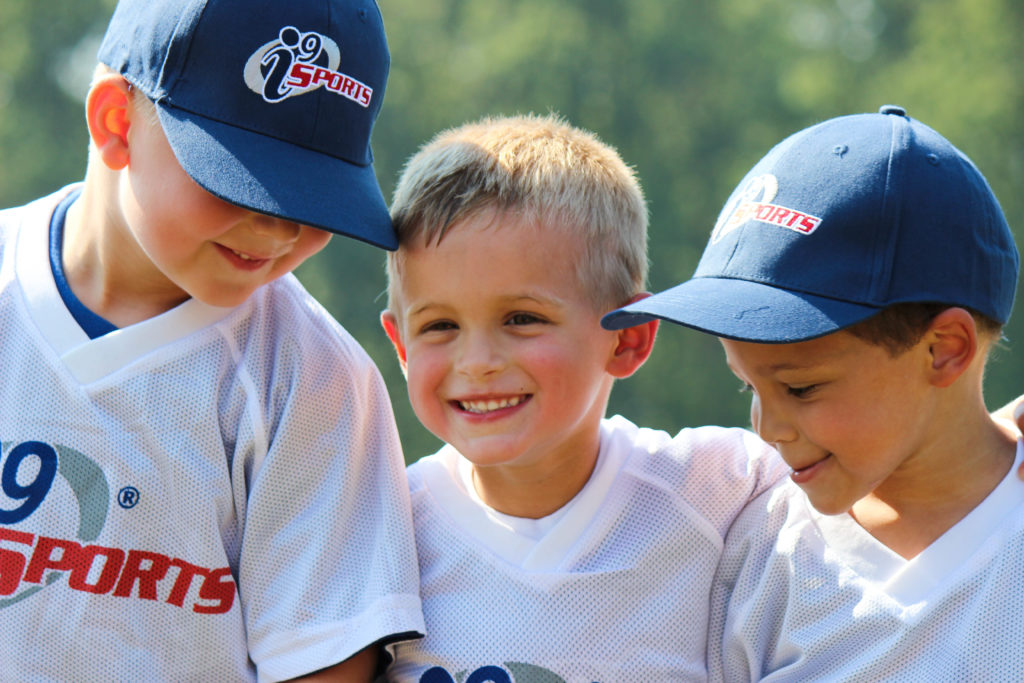How Youth Sports Impacts Early Childhood Development
One of the great things about being a kid is that you can try out a variety of different activities and sports. When it comes to kids and sports, there are many benefits that come along with playing. According to the American Academy of Child and Adolescent Psychiatry, sports improve physical skills, promote exercise, create friendships, invite fun, teach teamwork, instruct kids on fair play, and boost self-esteem. Read on to learn more about how sports impact early childhood development in positive ways!
Physical Skills & Healthy Habits
Participating in sports at a young age can promote healthy habits that will last a lifetime. Children who participate in sports tend to be more active and fit than those who don’t. This is because playing sports helps to improve overall physical fitness. Children who play sports also tend to have better muscular endurance, strength, agility, and are less likely to be overweight or obese. They may also be less likely to develop chronic health problems, such as diabetes or heart disease.
Better Mental Health
Mental health issues can affect anyone, regardless of age, race, or gender. Kids who participate in sports and other physical activities are less likely to experience mental health problems than those who don’t exercise.
Exercise is good for mental health. It releases endorphins–hormones that make you feel good—while boosting mood and reducing stress. When children are physically active, they feel better about themselves, which can help to reduce feelings of depression or anxiety.
Attention and Performance in School
Research shows that children between the ages of 6-12 who are physically active have better attention spans and have improved academic performance than their peers who do not. The study also found that adolescents who took part in sports were more likely to graduate from high school and attend college.
Create Friendships
Playing sports helps children to build relationships and socialize with others. This is because most sports require teamwork to be successful. Children learn how to communicate and cooperate with others to achieve a common goal.
Invite Fun
Kids and sports have always been a natural pairing. From the days of playing tag in the backyard to organized leagues, sports offer kids opportunities for exercise, teamwork, and fun!
No matter what sport your child chooses, it’s important to remember that the most important thing is that they have fun. Playing sports should be enjoyable, not a chore. So let your child choose the sport they’re most interested in and help them find a league or team that will provide a positive experience.
Nurtures Teamwork
Playing sports can help children develop important skills such as teamwork, discipline, and goal setting. These skills can carry over into other areas of a child’s life, such as school and work.
Playing sports also helps to improve concentration and focus. This is because children need to be able to stay focused to perform well during games or matches.
Teaches Kids Fair Play and Sportsmanship
From a young age, children need to be taught that sport is about playing fairly and respecting their opponents. Coaches teach players how to behave appropriately when a play or a game may not go the way they wanted it to.
Sportsmanship is key when it comes to teaching fair play. In sports, this includes things like shaking your opponent’s hand after a match, congratulating them on a good performance, and being respectful both on and off the field.
Self-Esteem
Playing sports can help children build confidence. When a child wins, they learn how to feel good about themselves and enjoy their accomplishments. When a child loses, they learn how to cope with disappointment and make improvements based on what they have learned.. Having confidence in both positive and negative situations is important as children grow and have more diverse experiences in life.
How to Get Your Child Started in Physical Activity
Getting your child started in sports can be a challenge, but it’s important for their health and well-being. Here are a few tips to help you get started:
- Start by setting a good example. Children are more likely to be active if they see their parents being active as well. Make sure you set aside time for physical activity each day, whether it’s going for a walk, playing outside, or going to the gym.
- Find an activity your child enjoys. Not all children enjoy the same activities, so find one that your child will enjoy. This could be anything from running and jumping around outside to swimming or biking.
- Make it a family affair. Get the whole family involved in physical activity. This can be a great way to spend time together and help your child develop healthy habits.
- Make it a routine. Try to make physical activity part of your child’s daily routine. This will help them get into the habit of being active and will ensure that they stay healthy and happy.
As you can see, there are many benefits to kids participating in sports and an active lifestyle. If your child is interested in playing a sport, encourage them to do so! Not only will they have fun, but they will also be developing important skills that will help them in life. Contact i9 Sports® today to find a program near you!
